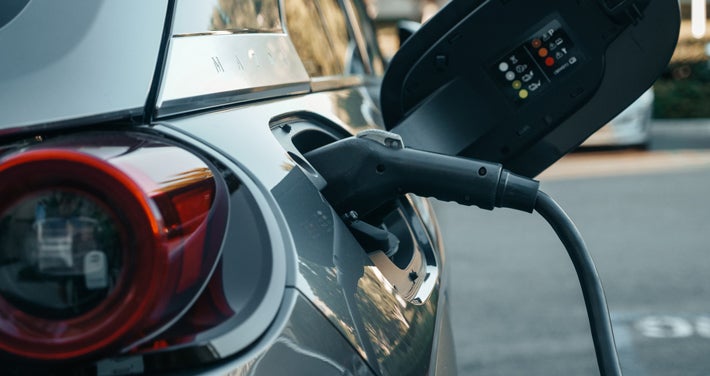Electric cars help lower emissions and fuel costs and offer drivers improved fuel economy. The decision to switch to an electric vehicle (EV) involves multiple factors such as up-front and long-term financial implications, driving habits, and whether you plan to install a charger at your home.
Before you buy, ask yourself these questions:
How far and how frequently do you drive?
EV range has come a long way in recent years. Over half of the all-electric vehicles currently on the market can cover a distance of over 250 miles on a single charge - visit fueleconomy.gov to see available vehicles and their ranges. Think about what range will work for you based on driving habits and how you plan to charge the vehicle.
How will you charge at home?
Most EVs come with a level 1 charger at the time of purchase. Level 1 delivers approximately 5 miles of range per hour of charge via a standard three-prong outlet, which means you have everything you need to charge your EV. If you don’t drive more than 40 to 50 miles each day, an overnight charge with a level 1 charger should be sufficient.
Did You Know? Up to 80% of the energy in the battery of an EV is used to power the car.
If level 1 does not meet your needs, you can consider installing a level 2 charger at your home. These chargers recharge vehicles more quickly, delivering approximately 25 miles of range per hour of charge at 240 volts. The typical cost is between $300 and $1500, and you will likely need to enlist the services of a professional electrician to perform the installation.
Learn more about electric vehicle charging options and the process to notify Unitil when you’re installing an EV charger.
The speed of charge also depends on the vehicle's capacity to charge, or charging rate, which is based on current and voltage limitations. Charging rate is measured in kilowatts (kW).
Can your current electric service panel handle the increased load?
If you live in an older home with 100-amp service, you may need to upgrade to 200-amp service to accommodate a level 2 charger. A professional electrician can evaluate your home for necessary improvements.
What incentives are available?
There are a variety of EV rebates, incentives so it’s good to research what’s available and eligibility requirements. The federal tax credit was amended significantly in 2022 as part of the Inflation Reduction Act and will sunset on September 30, 2025. Some of the changes include new eligibility requirements, elimination of caps for automakers, and a new pre-owned vehicle tax credit. Massachusetts also offers a rebate as part of their MOR-EV program.
If you are a Unitil electric customer in Massachusetts, you may also be eligible for a rebate to get your home, garage, driveway, or business ready to charge an electric vehicle through our Ready2Charge Program.
Can you save money by switching to a Time-of-Use rate?
EV Time-of-Use (TOU) rates are available to our residential electric customers in both Massachusetts and New Hampshire as well as New Hampshire business customers. TOU rates provide customers with more control over their energy costs, with tiered rates that encourage moving the bulk of their electricity use to off-peak hours when rates are at their lowest. For example, EV owners who switch to Time-of-Use and charge their vehicle overnight could see significant savings.
How extensive is the network of charging stations in your area?
Although the number of public high-speed charging stations is experiencing unprecedented growth, they are few and far between in some parts of the country. Fortunately, there are several maps available that detail the location, condition, availability, and plug compatibility of public chargers. Here are just two of the public charging maps available:
Key Takeaways:
- Electric vehicles are more affordable than ever, and almost every major automobile manufacturer offers at least one model.
- Factors to consider before purchasing an EV include the average distance you drive each day, the availability of public charging stations, and whether your existing electric panel can accommodate the increased load.
- Check with state and local governments, as well as your dealer, to learn about available rebates and incentives.



